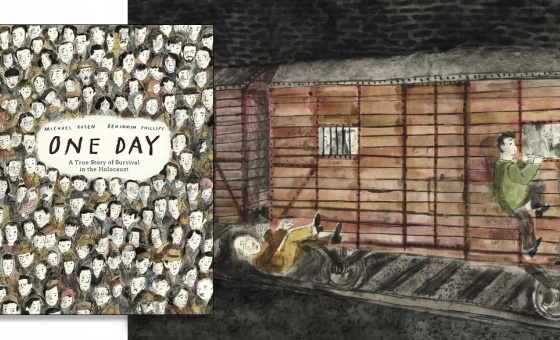This is the last article you can read this month
You can read more article this month
You can read more articles this month
Sorry your limit is up for this month
Reset on:
Please help support the Morning Star by subscribing here
RISING food, energy and housing costs and the falling value of wages mean that workers’ living standards are under attack. So are their legal rights. The government refuses to introduce an Employment Bill, promised in 2019, and is currently on course to remove a large body of workers’ rights derived from EU law, including the right to paid holidays.
The government is also attacking trade union rights, with further restrictions designed to undermine the ability of workers to fight back. Yet British workers are already among the least protected in the developed world, and British employers are among the most powerful.
British workplaces have been plagued for years by zero-hours or work-on-demand contracts, flexible contractual terms giving wide-ranging powers to managers to dictate when, where and how work is to be done, fire-and-rehire allowing employers to reduce pay and working conditions, and, at P&O Ferries, the emergence of fire-and-replace as a corporate tactic.
In the meantime, collective bargaining coverage has plummeted, with collective agreements reaching fewer than one in four workers, lower than at any time in the last 100 years.
The right to strike is constrained by unparalleled restrictions, though workers are heroically voting in their millions to overcome them. No surprise then that workers’ share of the nation’s wealth continues to decline as poverty and inequality continue to increase, threatening the very basis of our threadbare democratic institutions.
It is time for change.
As lawyers, we are offended also that these developments are in breach of a wide range of international legal obligations by which this country is bound — but which successive governments have ignored.
These include the International Labour Organisation’s Declaration of Philadelphia, and its Fundamental Conventions, the International Covenant on Economic, Social and Cultural Rights, and the European Social Charter (all treaties ratified by Britain). They also include the EU-Britain Trade and Co-operation Agreement, and the Brexit deal of 2020.
In that agreement, the Tory government gave a legally binding undertaking to the EU to protect labour standards and to comply with the international obligations mentioned above.
Yet here we are about to remove a host of core EU-derived employment rights and introduce even more restrictions on the right to strike.
The Transport Strikes (Minimum Service Level) Bill will include a duty on unions to take steps to ensure that members and others do not disrupt services, requiring the unions actively to work against members’ interests.
In terms of trade union and employment rights, there is a mountain to climb if the rule of law is to be restored to the workplace, if workers are to have a meaningful voice in setting terms and conditions of employment, and if unilateral decision making is to be stopped and employers held to account.
Remarkably, we find ourselves in the 21st century fighting 19th-century battles, despite the wealth, progress and sophistication enjoyed by the few at the expense of the many.
We need a new text to articulate demands which will set us in a new progressive direction. This is why the Institute of Employment Rights has created a new Workers’ Bill of Rights for an Age of Crisis. Rather than reheat the timeless provisions of existing international legal obligations, which were written in more optimistic periods of our history, we borrow from and adapt them to the contemporary crisis in Britain, to take into account the catastrophe faced by British workers.
We have tried to set out principles rather than detail. No doubt there are omissions that readers will wish to see included. It is not exhaustive; there will be gaps that need to be filled. But there will be no solution until we make collective bargaining a priority and succeed in restoring collective agreements to post-war levels of coverage.
The P&O Ferries’ dispute should be a lesson to us all on the fundamental importance of sector-wide collective agreements, imposing legally binding minimum obligations on all employers in the sector, regardless of who is responsible for paying the wages.
There would thus be no incentive for an employer to sack an existing workforce and replace it with a cheaper alternative supplied by an overseas agency. By the same token, P&O Ferries is a lesson to us all in the crucial importance of restoring the right to take solidarity action.
In that dispute, the prohibition on that right prevented the union from calling on fellow trade unionists to take action against the employer. It thereby denied them any lawful effective means of protecting the dismissed seafarers.
Unaccountable power is unacceptable when exercised by the state. It is no more acceptable when exercised by employers.
The Workers’ Bill of Rights for an Age of Crisis will be launched today at a national conference — From Pentonville to P&O: Union Rights and Tory Wrongs.
Speakers will include Frances O’Grady, John McDonnell MP, Barry Gardiner MP, Jo Grady, Hannah Reed, Michelle Stanistreet, Ben Chacko, Christine Blower, Nabeela Mowlana, Mark Serwotka, Laura Pidcock, Kevin Courtney, Mick Lynch, Mick Whelan, Matt Foot and Nick Toms.
The conference will also hear from those on the front line representing nurses, university and school workers, rail workers and dockers.
Professor Keith Ewing is president of the Institute of Employment Rights and Lord John Hendy KC is chair of the IER (www.ier.org.uk).
Workers’ Bill of Rights for an Age of Crisis
I
Every worker (however classified and except for the genuinely self-employed in business on their own account) shall be entitled to all employment rights from day one of their engagement. Labour law shall be universal in its application.
II
Every worker shall have the right to full transparency about the terms and conditions of employment, which shall clearly define the worker’s obligations in relation to when, where and what work is to be done.
Every worker shall be entitled to a just wage having regard to (i) the social value of the work undertaken, (ii) the principle of equal pay for work of equal value, and (iii) the principle of fair differentials where work is of different value.
Every worker shall be entitled to the regulation of working time which guarantees (i) a sufficient number of working hours to earn a just wage, (ii) a maximum number of working hours weekly or monthly; and (iii) reasonable paid rest breaks, meal breaks, breaks between shifts, weekly breaks, and holidays.
Every worker shall be entitled to a safe and healthy working environment, free from harassment, protective of and accommodating their particular needs and vulnerabilities, upholding their dignity, and governed by rules in the making of which workers’ representatives participate, and which are effectively enforced by a tripartite, fully committed, properly funded and staffed inspection and enforcement agency with full powers.
III
Every worker shall have the right to join an independent trade union — whether national or international — for the protection and promotion of their economic, social and political interests.
Every worker shall have the right to be represented by an independent trade union on all matters arising at work, at every level including that of their workplace, their employer, their trade, and their industry.
Every worker shall have the right to be protected by collective bargaining, and to this end it shall be the responsibility of the state to take steps to ensure that collective bargaining machinery operates at enterprise and sectoral level.
Every worker shall have the right to participate in trade union activities and not to be penalised for doing so, and every union shall have the right to reasonable access to its members and prospective members at the premises of the employer.
Every worker shall have the right to participate in industrial action for the protection and promotion of their economic, social and political interests and not to be penalised for doing so, and every union shall have the right to organise and support industrial action, subject only to the rules of the trade union in question.
IV
Every worker shall have the right to equality of opportunity and freedom from discrimination, and shall have the right to insist on barriers to employment being removed, including access to free or affordable high-quality childcare.
Every worker shall have the right — either directly or indirectly through their trade union — to be informed and consulted about changes to contractual or working practices and to agree before any such changes are implemented.
Every worker shall have the right to job security, and the right not to be dismissed for (i) refusing to agree to a change in the terms and conditions of their employment, or (ii) before dismissal or other procedures are fully complied with. Any such dismissal shall be void.
Every worker shall have the right to (i) social security benefits in unemployment, ill-health, or incapacity and to (ii) pension in retirement, which will guarantee a just income and a decent standard of living, without the need for charitable supplements.
V
Every worker shall have the right to insist that EU employment rights in force at the time of Brexit shall continue to apply in the United Kingdom, until such time as legislation makes provision for higher levels of protection.
Every worker shall have the right to effective labour standards. To this end, it is the responsibility of the state to ensure that rights at work are enforced in practice by a tripartite, fully committed, properly funded and staffed labour inspection and enforcement agency with full powers.
Every worker shall have the right of access to justice in tripartite independent, impartial and speedy labour courts with effective and uncapped remedies to restrain employers from, and to compensate workers for, unlawful acts by employers, and to which trade unions may, on the instruction of a relevant member(s), be parties.
Every worker shall have the right to representation in government. To this end, a Ministry of Labour shall be established to ensure that trade union freedom, collective bargaining structures, workers’ rights, and enforcement mechanisms are fully and effectively created and maintained.
VI
Every business selling goods or services in the United Kingdom and its territorial waters shall ensure that the workers in its supply chains are, in practice, accorded equivalent rights to those in this bill of rights.









